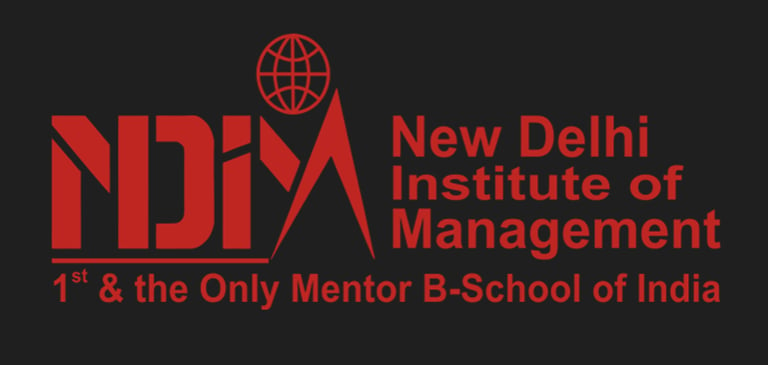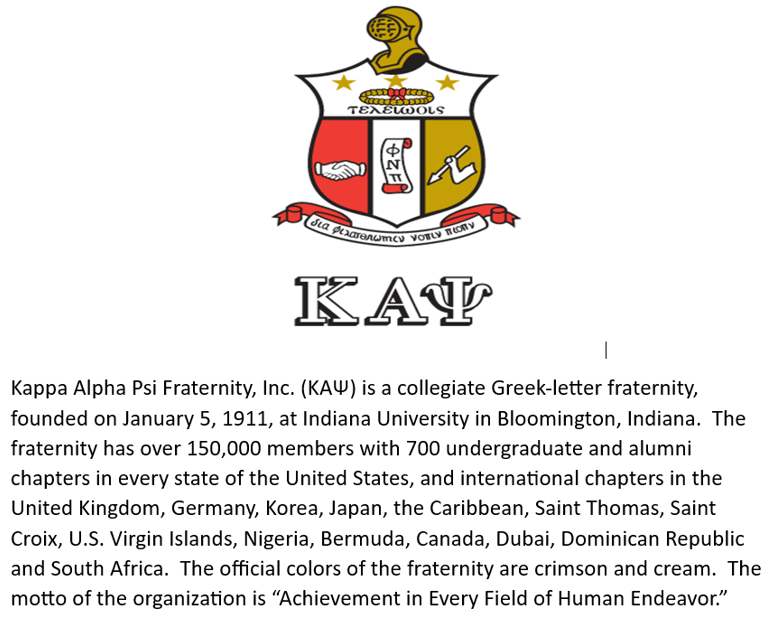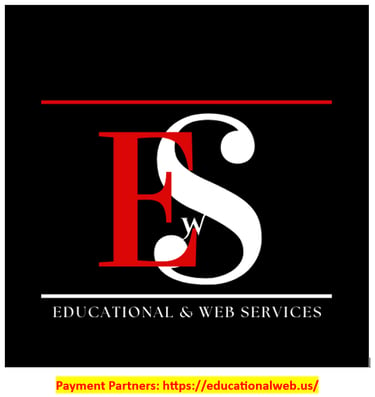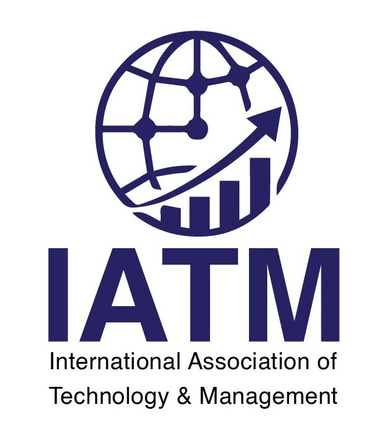IATM 2026 (Spring) International Conference
APRIL 10-11, 2026
Pittsburgh, PA
iatmconference@gmail.com
CALL FOR PAPERS
We are excited to announce the IATM 2026 Conference
on
“Responsible AI and Digital Infrastructure for Inclusive Business Transformation”
Date: April 10–11, 2026 (Friday & Saturday)
Format: Virtual Conference
Early Bird Registration Fee: USD $100 (till Dec 10, 2025)
Conference Email: iatmconference@gmail.com
Get Involved!
We warmly invite academicians, professionals, scholars, and students to:
1) Submit their research papers
2) Join the Conference Committee to serve as REVIEWERS, JUDGES, SESSION CHAIRS or in other leadership roles
If interested, please email your expression of interest to: iatmconference@gmail.com
Conference Leadership
Chairman (IATM Advisory Board): Trustee Larry C. Pickett, Carnegie Mellon University (USA)
Conference Director: Dr. Nripendra Singh, PennWest University (USA)
Conference Co-Chairs:
Dr. Dorene Cilletti, Point Park University (USA)
Dr. Heather Morgan, Kennesaw State University (USA)
Dr. Tanusree Chakraborty, Administrative Staff College of India (India)
Dr. Anand Jaiswal, TERI School of Advanced Studies (India)
📣 Join us in shaping the dialogue on Responsible AI and Digital Transformation for a more inclusive future!
Stay tuned for more details...
ACKNOWLEDGEMENT: The Microsoft CMT service was used for managing the peer-reviewing process for this conference. This service was provided for free by Microsoft and they bore all expenses, including costs for Azure cloud services as well as for software development and support.
Due Date for paper Submission: Dec 30, 2025
Publication Opportunities:
Journals from our partner institution ‘Global Institute of Flexible Systems Management’ (Global Journal of Flexible Systems Management (ABDC – A) and International Journal of Global Business and Competitiveness (ABDC-B) and SCOPUS Indexed Emerald (UK) Book Series on “Advances in Digital Technology and Data-Driven Business Practices”
Payment Links:
Payment Link: https://www.paypal.com/ncp/payment/NR6H4JL6ENRBS - $150 for Conf. Reg. Fee + IATM Membership for 2026 (Discount ends Dec 31, 2025)
Payment Link: https://www.paypal.com/ncp/payment/YWB2FVRHZTKAJ (Pay as per your category - student get 50% and PhD scholars 25% discount) Early Bird Registration: $100 (till Nov 30, 2025); Regular Registration: $125 (till Dec 31, 2025); Late Registration: $150 (After Dec 31, 2025)
Track and Session Chairs
AI Driven HR Transformations - Dr. Supriya Jain (GLA University, Mathura)
Beyond Compliance – Dr. Aparna Sajeev (University of Calicut, Malappuram, Kerala), Dr. Deepa Guleria (SVKM’s NMIMS, Chandigarh), and Dr. Harpreet Kaur (University of Delhi, New Delhi)
Building Trust in Intelligent Systems - Dr. Janardan Singh Chauhan (SATI, Vidisha) and Dr. Mukesh Tiwari (VC, Sri Satya Sai University of Technology and Medcal Science, Sehore, India)
Consumer Behavior and Digital Decision-Making - Dr. Rajeev Sirohi (Professor, GLBIMR, Greater Noida) and Dr. Roshee Lamichhane (Kathmandu University, Kathmandu, Nepal)
Data Science to Actionable Insight: Methods in Machine Learning, Multivariate Analysis, and Optimization – Dr. Masood H. Siddiqui (Department of Statistics, University of Lucknow)
Digital Consumers and Intelligent Markets – Dr. Dorene Ciletti (Point Park University, Pittsburgh), Dr. Madhu Jasola (IILM University, Gurugram), and Prof. RJ Thompson (University of Pittsburgh)
Festival Economy & Hospitality – Dr. Padma Singhal (Chetana’s Institute of Management & Research, Mumbai)
Fintech Forward: Navigating the Digital Transformation of Financial Services – Prof. Alamuri Suryanarayana (Faculty of Management, Osmania University, Hyderabad) and Dr. Hiranya Dissanayake (Wayamba University of Sri Lanka)
Flexible Systems Management in the Age of AI – Prof. Sushil (IIT Delhi, India)
Gig Economy Culture, Global Partnerships, and the Future of Inclusive Transformation - Dr. Nimisha Singh (Chhatrapati Shahu Ji Maharaj University (CSJMU), Kanpur; IIIT, Lucknow) and Dr. Tanuj Singh (Voorhees University, South Carolina)
Green Hospitality, Smart Profits - Dr. Dipendra Mann (University of Central Florida, Orlando, Florida)
Healthcare, Well-being, and Digital Health Systems – Dr. Vikas Tripathi (BIT Mesra Noida Campus)
Human Technology Service Interactions - Dr. Kriti Swarup (Sparsh Global Business School, Greater Noida) and Dr. Ambrish Singh (REC Azamgarh, Uttar Pradesh)
Immersive Marketing: Neuromarketing in the Age of VR, AR, and the Metaverse – Dr. Ranjan Chaudhuri (Department of Digital Marketing Business, EMLV Business School, France)
Leadership 4.0: The Next Evolution of Leadership – Dr. Michael Woody (Sigmund Weis School of Business at Susquehanna University) and Dr. Alison Binger (Southern New Hampshire University)
Reclaiming Intelligence – Dr. Anupma Singh (Drexel University, Philadelphia) and Dr. Priyanka Tripathi (IIT, Patna)
Sustainable Consumption and Green Digital Economies – Dr. Soniya Billore (Linnaeus University, Sweden)
Sustainable Entrepreneurship – Dr. Anand Jaiswal (TERI SAS, New Delhi)
The Future of Work – Dr. Tanusree Chakraborty (Administrative Staff College of India, Hyderabad)
Tourism, Hospitality, and Digital Experiences - Dr. Shad Ahmad Khan (University of Buraimi, Oman)
Mindful AI for Sustainable Well-Being - Dr. Amruta Deshpande (Indira University, Pune)
Special Track#1: Teaching Innovations Award – Dr. Nripendra Singh (Pennsylvania Western University)
Special Track#2: Doctoral Research Award - Dr. Heather Morgan (Kennesaw State University, Georgia)
Special Track#3: Student Research Award – Trustee Larry C. Pickett (Carnegie Mellon University, Pittsburgh)
Cluster 1: Responsible AI, Trust, and Governance
This cluster emphasizes ethical, transparent, and trustworthy AI systems that enhance decision-making while protecting human values. It integrates data science, social sciences, governance frameworks, and flexible systems to promote responsible digital transformation rooted in accountability, inclusivity, and human-centric principles.
Tracks # 3, 5, 9, 16: AI-Driven HR Transformations • Building Trust in Intelligent Systems • Data Science to Actionable Insight • Flexible Systems Management • Social Sciences Shaping AI in Society
Cluster 2: Digital Consumers, Markets, and Marketing Innovation
Centered on the changing digital consumer landscape, this cluster explores how AI, immersive technologies, and intelligent markets shape behavior, engagement, and sustainable consumption. It highlights ethical personalization, immersive experiences, and green digital marketplaces that drive future marketing practices.
Tracks # 4, 6, 14: Consumer Behavior & Digital Decision-Making • Digital Consumers & Intelligent Markets • Immersive Marketing (VR/AR/Metaverse) • Sustainable Consumption & Green Digital Economies
Cluster 3: Sustainable Business, Green Innovation & Hospitality Futures
This cluster examines sustainability through digital and AI-enabled solutions that enhance environmental responsibility while strengthening business performance. It spans green hospitality, festival economy, sustainable entrepreneurship, and technology-driven tourism to promote eco-friendly models and community well-being.
Tracks # 2, 17, 18: AI-Powered Sustainability Policy • Festival Economy & Hospitality • Green Hospitality & Smart Profits • Sustainable Entrepreneurship • Tourism & Digital Experiences
Cluster 4: Work, Workforce, Leadership & Future Organizations
Focusing on the future of organizations, this cluster highlights AI-driven workforce shifts, leadership transformation, gig economy dynamics, and inclusive labor strategies. It supports developing agile, ethical, and human-centered management practices in an increasingly automated and globally connected world.
Tracks # 1, 10, 15, 19: Gig Economy & Global Partnerships • Leadership 4.0 • The Future of Work
Cluster 5: Fintech, Healthcare & Intelligent Service Ecosystems
This cluster brings together digital finance, digital health, and AI-powered service interactions. It explores how intelligent systems enhance quality, accessibility, security, and efficiency while creating inclusive and trustworthy service ecosystems across critical sectors.
Tracks # 8, 12, 13: Fintech Forward • Digital Health & Well-being • Human–Technology Service Interactions
Cluster 6: Tourism, Hospitality & Experience Innovation
This cluster focuses on AI-driven personalization, smart infrastructure, sustainability, and digital experience design across tourism and hospitality industries. It promotes responsible, culturally enriched, and digitally enabled visitor experiences that support economic growth and environmental stewardship.
Tracks # 7, 11, 20: Festival Economy • Green Hospitality • Tourism & Digital Ecosystems
Cluster 7: Academic Excellence, Pedagogy & Emerging Research
This cluster supports academic innovation through teaching excellence, student research engagement, and advanced doctoral contributions. Emphasizing AI-enabled learning and interdisciplinary inquiry, it encourages a community of knowledge sharing that strengthens the academic mission of inclusive digital transformation.
Tracks # 21, 22, 23: Teaching Innovations Award • Doctoral Research Award • Student Research Award
This conference will explore the transformative potential of Responsible AI, Digital Infrastructure, and Inclusive Innovation across domains including management, technology, business, policy, marketing, hospitality, sustainability, health, leadership, and education. There are 24 tracks covering 7 clusters. We welcome contributions broadly aligned with:
Responsible, transparent, and trustworthy AI
Digital infrastructure & transformation
Sustainability and circular economies
Future workplaces, leadership, and gig ecosystems
Digital customers, immersive technologies, and global markets
Smart tourism & hospitality
Inclusive entrepreneurship and innovation
Emerging pedagogies & impact-driven academic research
Please note that the clusters are designed to guide authors by highlighting broad thematic domains, while the actual paper submission should be made under the specific tracks listed within each cluster. Authors will select the appropriate TRACK — not the CLUSTER — when submitting their papers on the CMT portal.
TRACKS:
1. AI-Driven HR Transformations
This track explores responsible AI applications shaping talent acquisition, employee experience, performance evaluation, and workplace culture. It emphasizes fairness, transparency, and digital readiness while transforming HR systems for inclusive and data-driven decision-making.
Sub-themes: Talent analytics, algorithmic bias mitigation, AI-enabled learning, digital onboarding, predictive workforce planning, ethical HR automation.
2. Beyond Compliance: AI-Powered Policy Pathways to Sustainability
Focuses on regulatory innovation and AI-driven policy frameworks enabling sustainable business transformation. Discussions center on how digital tools enhance monitoring, reporting, and decision-making beyond minimal compliance.
Sub-themes: ESG analytics, AI in policy modeling, sustainability dashboards, carbon tracking, ethical regulation, circular economy policy design.
3. Building Trust in Intelligent Systems
This track examines how organizations can design, govern, and communicate trustworthy AI systems. It integrates technical transparency, ethical governance, and user-centered approaches to strengthen public confidence.
Sub-themes: Explainable AI, data governance, accountability frameworks, human-in-the-loop systems, AI risk assessment, digital trust metrics.
4. Consumer Behavior and Digital Decision-Making
Examines how AI tools, digital interfaces, and data-driven algorithms influence consumer choices. It highlights responsible use of personalization and nudging for ethical marketplace behavior.
Sub-themes: Algorithmic persuasion, digital heuristics, consumer analytics, emotion-AI, ethical personalization, online decision journeys.
5. Data Science to Actionable Insight
Focuses on contemporary methodologies in machine learning, multivariate statistics, optimization, and predictive modeling for business transformation. Emphasis is on responsible data-to-decision pipelines.
Sub-themes: ML modeling, deep learning, big-data pipelines, optimization techniques, advanced analytics, decision intelligence.
6. Digital Consumers and Intelligent Markets
Explores the evolution of markets shaped by digital ecosystems, intelligent platforms, and data networks. Focus is on inclusivity, market access, and fairness in digitally mediated exchanges.
Sub-themes: Platform economies, digital retailing, AI marketplaces, omnichannel behavior, social commerce, digital inclusivity.
7. Festival Economy & Hospitality
Highlights how digital tools, AI insights, and data ecosystems shape visitor engagement, festival planning, cultural tourism, and hospitality business models.
Sub-themes: Event analytics, festival tourism, crowd management tech, smart venues, cultural economy, visitor experience mapping.
8. Fintech Forward
Addresses innovations transforming financial services through AI, blockchain, automation, and digital infrastructure while ensuring transparency, inclusion, and security.
Sub-themes: Digital payments, blockchain finance, robo-advisory, fraud analytics, financial inclusion, AI in credit scoring.
9. Flexible Systems Management in the Age of AI
Focuses on adaptable organizational systems, dynamic strategies, and AI-driven resilience approaches that enable continuous innovation and responsive decision-making.
Sub-themes: Cyber-physical systems, agile governance, digital resilience, adaptive optimization, AI-enabled operations, systems thinking.
10. Gig Economy Culture, Global Partnerships & Inclusive Transformation
Examines the digital labor market, cross-border collaborations, and platform-mediated work structures while promoting fairness, inclusivity, and sustainable livelihoods.
Sub-themes: Platform work equity, global freelancing, AI job matching, cross-cultural collaboration, digital worker rights, inclusive digital labor.
11. Green Hospitality, Smart Profits
Explores how AI and digital tools enable environmentally responsible yet profitable hospitality practices. Focuses on operations, energy use, waste management, and customer experience.
Sub-themes: Eco-efficiency tech, smart energy systems, AI in hotel operations, sustainable design, green certifications, eco-customer engagement.
12. Healthcare, Well-being & Digital Health Systems
Discusses innovations in digital health, predictive analytics, telemedicine, and AI-enabled health platforms that improve access, quality, and patient empowerment.
Sub-themes: Telehealth, wearable sensors, AI diagnostics, population health analytics, mental-wellbeing tech, digital care pathways.
13. Human-Technology Service Interactions
Focuses on service encounters where AI agents, robots, and digital interfaces co-create value alongside humans. Emphasis on experience quality, ethics, and design.
Sub-themes: Service robots, conversational AI, human-AI co-production, service design, affective computing, user experience.
14. Immersive Marketing
Explores VR, AR, metaverse experiences, and neuromarketing insights shaping future consumer engagement and brand immersion.
Sub-themes: XR branding, virtual stores, biometric insights, metaverse retail, sensory design, immersive storytelling.
15. Leadership 4.0
Examines how leaders can leverage AI, data, and digital ecosystems to build resilient, ethical, and human-centered organizations.
Sub-themes: Digital leadership skills, ethical governance, AI-augmented decision-making, change management, inclusive leadership, future-ready cultures.
16. Reclaiming Intelligence: Social Sciences Shaping AI
Explores how social sciences contribute to responsible AI development, equitable education systems, and human-centered digital futures.
Sub-themes: AI in education, sociology of technology, policy ethics, digital literacy, cultural intelligence, equitable learning systems.
17. Sustainable Consumption & Green Digital Economies
Focuses on consumer transitions toward green lifestyles, supported by digital platforms and AI analytics enabling accountability and sustainable choices.
Sub-themes: Green consumerism, circular digital markets, sustainability data, ethical consumption, eco-nudging, carbon-aware shopping.
18. Sustainable Entrepreneurship
Examines AI-driven, innovation-centered, and environmentally responsible start-up ecosystems that create inclusive economic opportunities.
Sub-themes: Green innovation, digital start-ups, social entrepreneurship, impact investing, AI-driven venture development, sustainable value chains.
19. The Future of Work
Explores emerging workplace models shaped by AI, robotics, and digital infrastructures, highlighting upskilling, automation, and inclusive labor futures.
Sub-themes: Hybrid work, workplace AI, skill transitions, automation impacts, worker well-being, inclusive workforce planning.
20. Tourism, Hospitality & Digital Experiences
Covers how AI and digital tools shape travel behavior, destination management, and visitor experiences, while promoting sustainability.
Sub-themes: Smart destinations, travel analytics, AI itinerary planning, digital guest experiences, sustainable tourism, virtual tours.
21. Mindful AI for Sustainable Well-Being and Inclusive Digital Transformations
leverages mindfulness and AI to foster mental health and workplace wellness, and drive sustainable living through behavioral insights. Sub-themes: Mindfulness for Digital Well-Being, AI for Mental Health and Workplace Wellness, AI-Driven Behavioural Insights for Sustainable Living, The iPhone Effect... Digital Mindfulness to Reduce Technostress.
22. Special Track #1: Teaching Innovations Award
Showcases pedagogical innovations leveraging AI, digital tools, and experiential learning to prepare responsible, industry-ready graduates.
Sub-themes: AI-enabled teaching, immersive classrooms, data-driven pedagogy, interdisciplinary learning, assessment innovation, digital course design.
23. Special Track #2: Doctoral Research Award
Highlights high-quality doctoral research aligned with responsible AI, digital transformation, sustainability, and interdisciplinary inquiry.
Sub-themes: Emerging methodologies, doctoral innovations, policy-relevant research, AI-society intersections, empirical contributions, cross-disciplinary insights.
24. Special Track #3: Student Research Award
Encourages undergraduate and graduate students to present innovative, ethical, and digitally enabled research addressing societal and business challenges.
Sub-themes: AI applications, sustainability solutions, digital business models, data analytics, youth innovation, problem-solving projects.
Conference Tracks
Submission Guidelines
Please note that all submissions are made on conference management system ‘Microsoft CMT’. Click on the link to submit paper https://cmt3.research.microsoft.com/IATM2026 (you will need to create an account to submit it). You might have to search for ‘IATM 2026 (Spring) Conference’ under 'ALL CONFERENCES'. Alternatively you can submit your papers via email iatmconference@gmail.com
1. Due Date, Eligibility, and Scope
- Due Date for paper Submission: Dec 30, 2025
- Papers should be original and not previously published or under consideration elsewhere.
- Submissions should align with the conference's themes and topics.
2. Submission Platform
- Abstracts and Papers must be submitted electronically on Microsoft CMT.
- Authors must create an account on https://cmt3.research.microsoft.com/ to submit abstract or paper.
- Click the link or the button to submit paper https://cmt3.research.microsoft.com/IATM2026
3. Submission Types:
(1) Refereed Papers: Refereed papers must not exceed 7,000 words including everything. The referred papers will be sent for blind review and therefore DO NOT write authors names anywhere in the manuscript. Manuscript should have title, abstract (about 250 words), 4 or 5 keywords, main body (introduction, literature review, methodology, results, discussion, implications, conclusion, and references) in APA style.
Each track will have one BEST PAPER award from the refereed papers. Selected referred papers will be published in the partner journals. At least one author must register for the conference for ‘Best Paper’ award. Doctoral Students will have separate overall Best Paper Awards.
(2) Work-in-Progress (WIP) Papers: WIP papers are not completed research work. It should not be more than 1500 words. Template for WIP papers is similar to refereed papers. Accepted WIP papers will be published in the conference proceedings. At least one author must register for the conference. Undergraduate Students will have separate Awards.
(3) Panel Session Papers: Submit a proposal in not more than 500 words in the following format: (i) Topic, (ii) Description, (iii) Relevance. Panel Chair (proposer) should note that to have a panel session accepted, there should be atleast 2 or more registered panelists / presenters in the session. Each panel session paper should not be more than 1000 words to be published in the conference proceedings.
4. Format and Page Limit
- Font Size and Style: 12 Times New Roman with Single Line Spacing
- Refereed papers: Maximum 7000 words including references (considered for publication in partner Journal or book)
- WIP papers: Maximum 1500 words including references. (considered for publication in conference proceedings and in partner book series as chapters, after revision and making it appropriate for publication as chapter with out 4000 or more words)
- Panel papers: Maximum 500 words. (considered for publication in conference proceedings)
5. File Format
- Submit the paper in Word Doc format.
- Ensure the file size does not exceed 10 MB.
6. Blind Review Policy
- Refereed papers will undergo a blind review process.
- Remove all author identifiers from the manuscript.
- Include author information only in the registration form and separate cover page, not in the manuscript.
7. Figures and Tables
- Figures and tables should be in paper with appropriate captions.
- If table, figure, or illustration has been taken from a third-party (outside) source, permissions to reproduce it should be submitted.
- Any supplementary material should be submitted as a separate file
8. Plagiarism and AI Similarity
- Submit plagiarism report with less than 20% similarity score.
9. Revision and Re-submission
- Accepted papers may be required to make revisions as per reviewers’ comments. So submit papers and its revisions as per due dates.
- Late submissions (after Feb 25, 2026) will not be considered for PUBLICATION in journal or book. So, adhere to due dates.
10. Presentation Requirements
- At least one author of each accepted paper must register and present the paper at the conference.
- Presentation can be done online or in-person using any format
11. Conference Proceedings
- Conference proceedings will be published ONLINE with the registered ISSN number from USA.
- Only structured Abstracts (ABOUT 250-300 WORDS) will be published that will be submitted via google form at the following link https://docs.google.com/forms/d/e/1FAIpQLSdrlsJm84TNzxqHkAQOrzAqJxZgIjVd2t5ev61OS-3X3MwbMQ/viewform .
- Abstracts should strictly follow this format to get published in the conference proceedings: Title, Authors name/s with affiliation (only institution name) and email, Background/Purpose, Method, Results/Findings, Theoretical/Practical Implications, Uniqueness/Originality Value, 4-5 Keywords.
- Title and Sub-headings will be CAPS and BOLD, Font Size 12, Times New Roman, Submit as a WORD Doc only
- Conference proceeding will be available on the IATM website (https://iatm.us/iatm-conference).
- Submissions after Feb 25, 2026 will not be published in the conference proceedings.
For queries, please contact the conference organizing committee iatmconference@gmail.com


SPONSORS & ACADEMIC PARTNERS
IATM Advisory Board & Members wholeheartedly THANK all our Sponsors and Academic Partners... This conference would not have been possible without your generous donations and sponsorships. Appreciate your Support!






